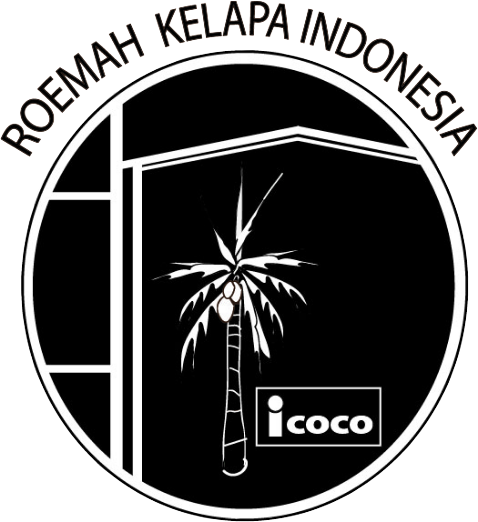
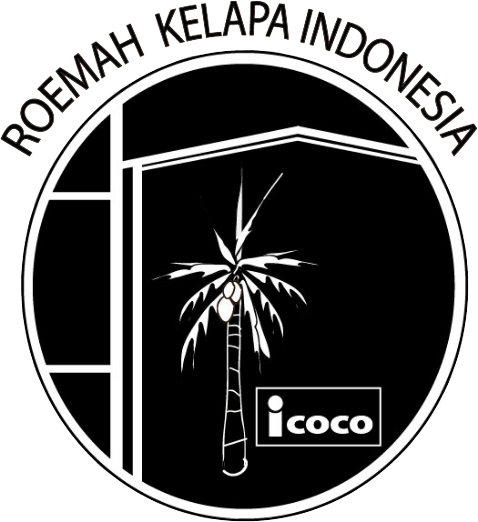
Roemah Kelapa Indonesia Group




CO-OPERATION WITH RESEARCH INSTITUTION
CO-OPERATION WITH RESEARCH INSTITUTION
CIRAD
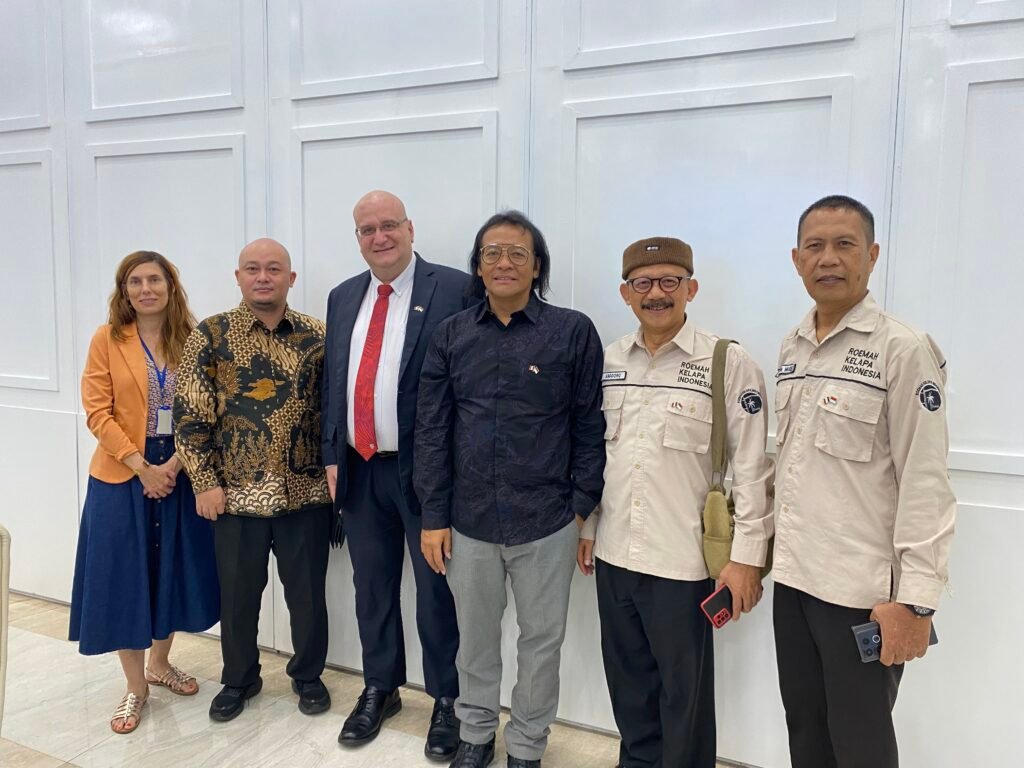
the RoeKI–CIRAD partnership is not just a research initiative—it is a strategic transformation engine for Indonesia’s coconut and cacao industries. By embedding digitalization into plantation management, this collaboration ensures that Indonesia’s coconut sector evolves into a globally competitive, innovation-led, and sustainability-driven industry in full alignment with national development priorities.
CIRAD

the RoeKI–CIRAD partnership is not just a research initiative—it is a strategic transformation engine for Indonesia’s coconut and cacao industries. By embedding digitalization into plantation management, this collaboration ensures that Indonesia’s coconut sector evolves into a globally competitive, innovation-led, and sustainability-driven industry in full alignment with national development priorities.
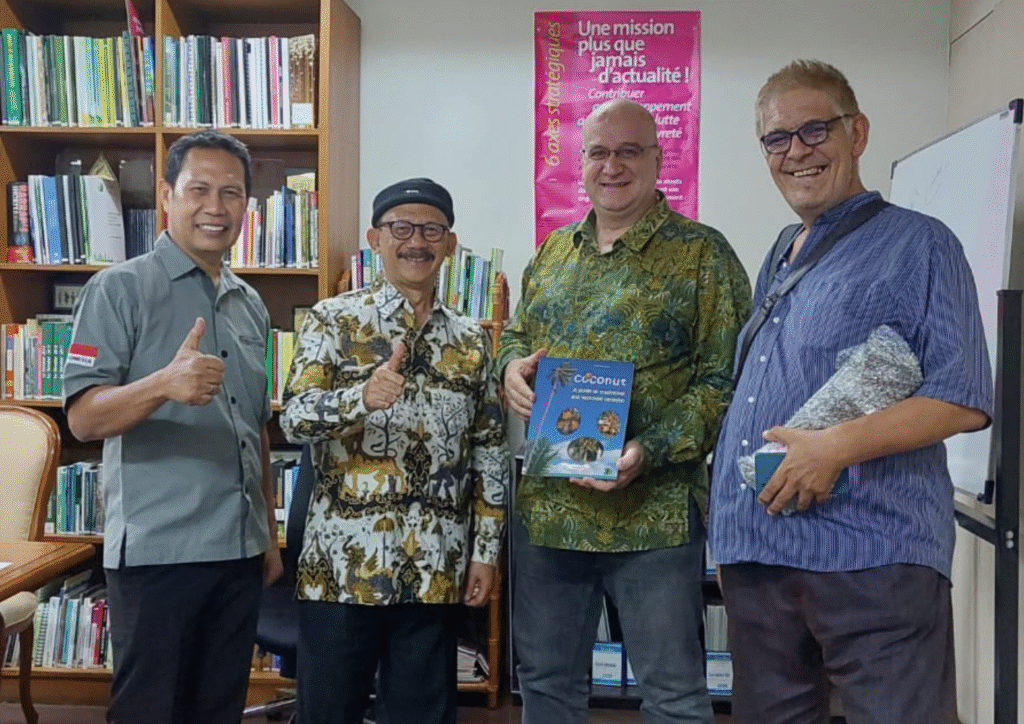
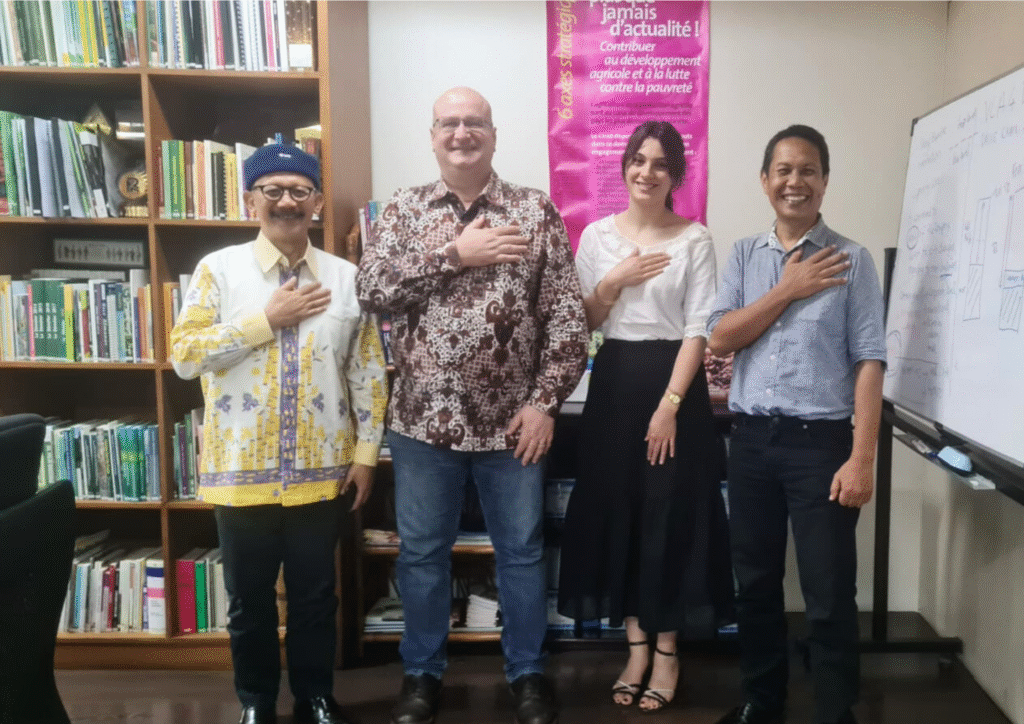
TRANSORMING INDONESIA’S COCONUT SECTOR
RoeKI and CIRAD Partnership for Research and Plantation Digitalization
Indonesia, as the one of the world’s largest coconut producer, is entering a new era of transformation—shifting from traditional cultivation methods to modern, technology-driven, and market-oriented systems. This transformation is essential not only for increasing productivity and product diversification but also for ensuring the sustainability, traceability, and competitiveness of Indonesian coconuts in the global market.
1. The Transformation Vision
The future of Indonesia’s coconut industry rests on:
Upstream Modernization: Adoption of improved varieties, precision planting, and sustainable farming practices.
Midstream Integration: Establishing efficient, certified processing facilities to meet premium market standards.
Downstream Diversification: Expanding into high-value products such as MCT oil, coconut water concentrates, activated carbon, and eco-industrial by-products.
This holistic approach is in direct alignment with the Indonesian Coconut Downstream Roadmap coordinated by Bappenas.
2. RoeKI–CIRAD Research and Digitalization Collaboration
Recognizing the critical role of science and innovation, Roemah Kelapa Indonesia (RoeKI) has partnered with CIRAD (French Agricultural Research Centre for International Development) to accelerate transformation through research and digital plantation management systems.
Key focus areas include:
Advanced Agronomic Research: Joint studies on optimal cultivation practices for coconuts and cacao, including soil health, pest control, and intercropping systems.
Digital Plantation Mapping: Using satellite imagery, drones, and IoT sensors to monitor plantation health, predict yields, and optimize resource use.
Traceability Systems: Implementing blockchain-enabled digital records to ensure full traceability from plantation to end consumer, boosting trust in export markets.
Data-Driven Decision Making: Creating farmer-friendly mobile platforms to provide real-time agronomic advice, market price updates, and weather forecasts.
3. Strategic Importance for Coconut and Cacao
While the core focus is on coconuts, the program also integrates cacao plantations—leveraging Indonesia’s role as a major cocoa producer. The synergy between coconut and cacao offers:
Income Diversification: Farmers benefit from both short- and long-term crops.
Shared Digital Infrastructure: One integrated system serving multiple commodity value chains.
Global Market Leverage: Strengthened positioning in premium food and health product markets.
4. Why This Matters for the Roadmap
This collaboration directly supports Indonesia’s Coconut Downstream Roadmap by:
Accelerating productivity gains through science-based farming.
Enabling quality assurance that meets international certification requirements.
Strengthening export readiness with transparent traceability systems.
Ensuring sustainable plantation management in line with environmental goals.
TRANSORMING INDONESIA’S COCONUT SECTOR
RoeKI and CIRAD Partnership for Research and Plantation Digitalization
Indonesia, as the one of the world’s largest coconut producer, is entering a new era of transformation—shifting from traditional cultivation methods to modern, technology-driven, and market-oriented systems. This transformation is essential not only for increasing productivity and product diversification but also for ensuring the sustainability, traceability, and competitiveness of Indonesian coconuts in the global market.
1. The Transformation Vision
The future of Indonesia’s coconut industry rests on:
Upstream Modernization: Adoption of improved varieties, precision planting, and sustainable farming practices.
Midstream Integration: Establishing efficient, certified processing facilities to meet premium market standards.
Downstream Diversification: Expanding into high-value products such as MCT oil, coconut water concentrates, activated carbon, and eco-industrial by-products.
This holistic approach is in direct alignment with the Indonesian Coconut Downstream Roadmap coordinated by Bappenas.
2. RoeKI–CIRAD Research and Digitalization Collaboration
Recognizing the critical role of science and innovation, Roemah Kelapa Indonesia (RoeKI) has partnered with CIRAD (French Agricultural Research Centre for International Development) to accelerate transformation through research and digital plantation management systems.
Key focus areas include:
Advanced Agronomic Research: Joint studies on optimal cultivation practices for coconuts and cacao, including soil health, pest control, and intercropping systems.
Digital Plantation Mapping: Using satellite imagery, drones, and IoT sensors to monitor plantation health, predict yields, and optimize resource use.
Traceability Systems: Implementing blockchain-enabled digital records to ensure full traceability from plantation to end consumer, boosting trust in export markets.
Data-Driven Decision Making: Creating farmer-friendly mobile platforms to provide real-time agronomic advice, market price updates, and weather forecasts.
3. Strategic Importance for Coconut and Cacao
While the core focus is on coconuts, the program also integrates cacao plantations—leveraging Indonesia’s role as a major cocoa producer. The synergy between coconut and cacao offers:
Income Diversification: Farmers benefit from both short- and long-term crops.
Shared Digital Infrastructure: One integrated system serving multiple commodity value chains.
Global Market Leverage: Strengthened positioning in premium food and health product markets.
4. Why This Matters for the Roadmap
This collaboration directly supports Indonesia’s Coconut Downstream Roadmap by:
Accelerating productivity gains through science-based farming.
Enabling quality assurance that meets international certification requirements.
Strengthening export readiness with transparent traceability systems.
Ensuring sustainable plantation management in line with environmental goals.

RoeKI’s Contribution to Indonesia–Germany Collaboration in Sustainability
RoeKI’s Contribution to Indonesia–Germany Collaboration in Sustainability
Roemah Kelapa Indonesia (RoeKI) has consistently earned the trust of international partners to actively participate in various strategic forums, high-level dialogues, and collaborative agendas at both national and global levels, particularly those organized by EKONID (the German-Indonesian Chamber of Industry and Commerce) and leading institutions from Germany.
Some of the prestigious international forums attended by RoeKI include the Circular Economy Forum, German Automation Delegation, German Waste Management and Recycling Forum, as well as the Roundtable Discussion with the Federal Ministry for Economic Affairs & Energy (Germany). These platforms bring together policymakers, industry leaders, technology providers, and sustainability stakeholders to exchange insights on green industry development, automation, waste management systems, and renewable energy transition.
Through these engagements, RoeKI actively contributed to discussions on coconut-based bioenergy development, circular economy implementation, sustainable supply chain strengthening, and cross-border industrial collaboration opportunities between Indonesia and Germany. RoeKI’s involvement reflects the strong confidence of international stakeholders in its institutional capacity, technical competence, and strategic role in advancing renewable resource-based industries.
Through continuous participation in these global forums, RoeKI plays an active role not only as a participant, but also as a strategic partner in knowledge exchange, market and regulatory trend discussions, technology innovation, and the development of concrete cross-sector collaborations. These efforts strongly support the acceleration of Indonesia’s energy transition and enhance the global competitiveness of Indonesia’s coconut-based industries in a sustainable and responsible manner.
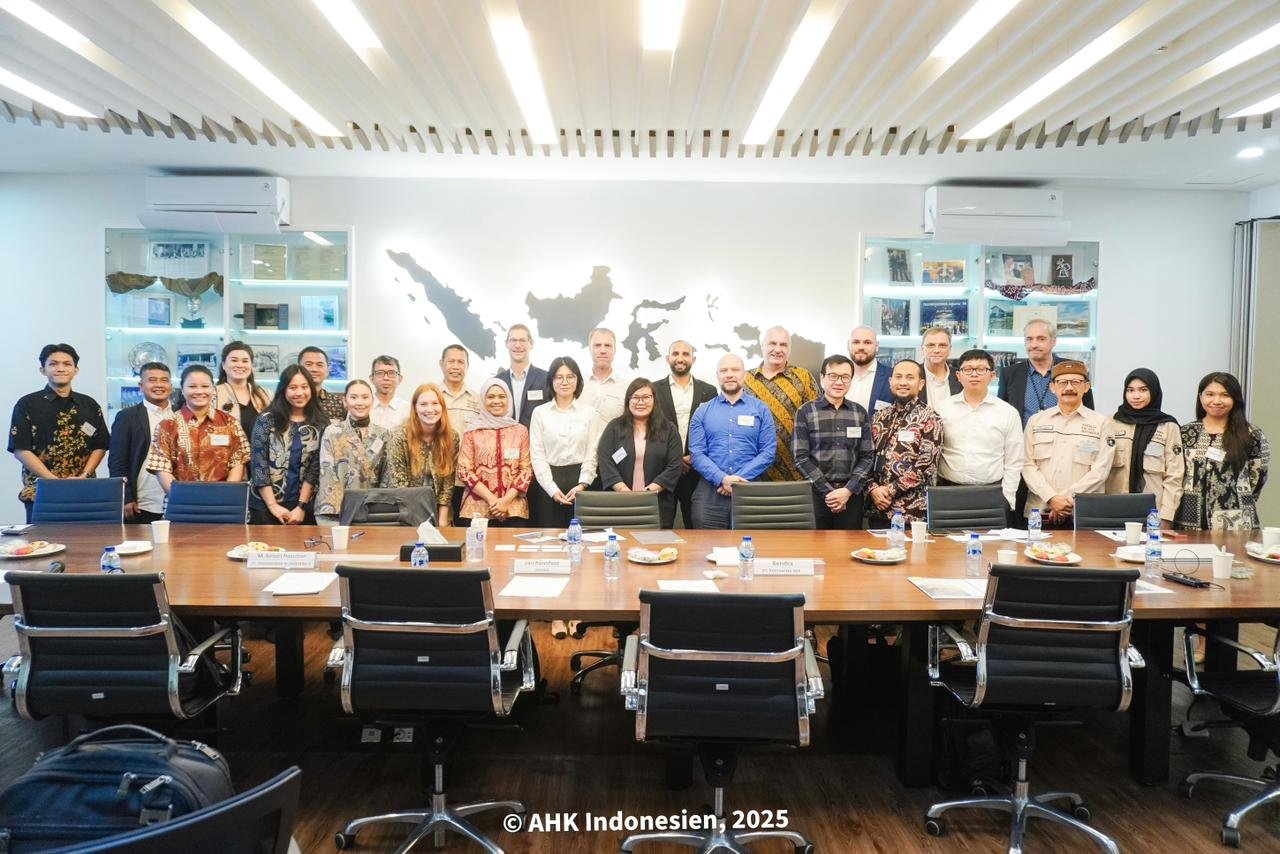
Roemah Kelapa Indonesia (RoeKI) has consistently earned the trust of international partners to actively participate in various strategic forums, high-level dialogues, and collaborative agendas at both national and global levels, particularly those organized by EKONID (the German-Indonesian Chamber of Industry and Commerce) and leading institutions from Germany.
Some of the prestigious international forums attended by RoeKI include the Circular Economy Forum, German Automation Delegation, German Waste Management and Recycling Forum, as well as the Roundtable Discussion with the Federal Ministry for Economic Affairs & Energy (Germany). These platforms bring together policymakers, industry leaders, technology providers, and sustainability stakeholders to exchange insights on green industry development, automation, waste management systems, and renewable energy transition.
Through these engagements, RoeKI actively contributed to discussions on coconut-based bioenergy development, circular economy implementation, sustainable supply chain strengthening, and cross-border industrial collaboration opportunities between Indonesia and Germany. RoeKI’s involvement reflects the strong confidence of international stakeholders in its institutional capacity, technical competence, and strategic role in advancing renewable resource-based industries.
Through continuous participation in these global forums, RoeKI plays an active role not only as a participant, but also as a strategic partner in knowledge exchange, market and regulatory trend discussions, technology innovation, and the development of concrete cross-sector collaborations. These efforts strongly support the acceleration of Indonesia’s energy transition and enhance the global competitiveness of Indonesia’s coconut-based industries in a sustainable and responsible manner.
